For many dog lovers, allergies can be a significant barrier to owning a pet. Fortunately, certain dog breeds are known for being hypoallergenic, which means they are less likely to cause allergic reactions in sensitive individuals. These breeds typically have hair that sheds less, produces fewer allergens, or has a coat that traps dander more effectively. Hypoallergenic dogs are not completely allergen-free, but they significantly reduce the risk of allergic reactions, making them suitable companions for allergy sufferers. This article will explore 11 dog breeds known for their hypoallergenic qualities and low-shedding puppies, highlighting the characteristics that make each breed a great option for homes where allergies are a concern.
1. Poodle
Poodles come in three sizes (Standard, Miniature, and Toy) but all share hypoallergenic qualities, making them one of the most popular choices for allergy sufferers. Their curly coats produce very little dander and hair loss, trapping allergens that would otherwise become airborne. Poodles require regular grooming to maintain their coat’s condition and prevent matting, which also helps manage allergens. Highly intelligent and trainable, Poodles excel in obedience and agility, making them not only a hypoallergenic choice but also a delight to train.
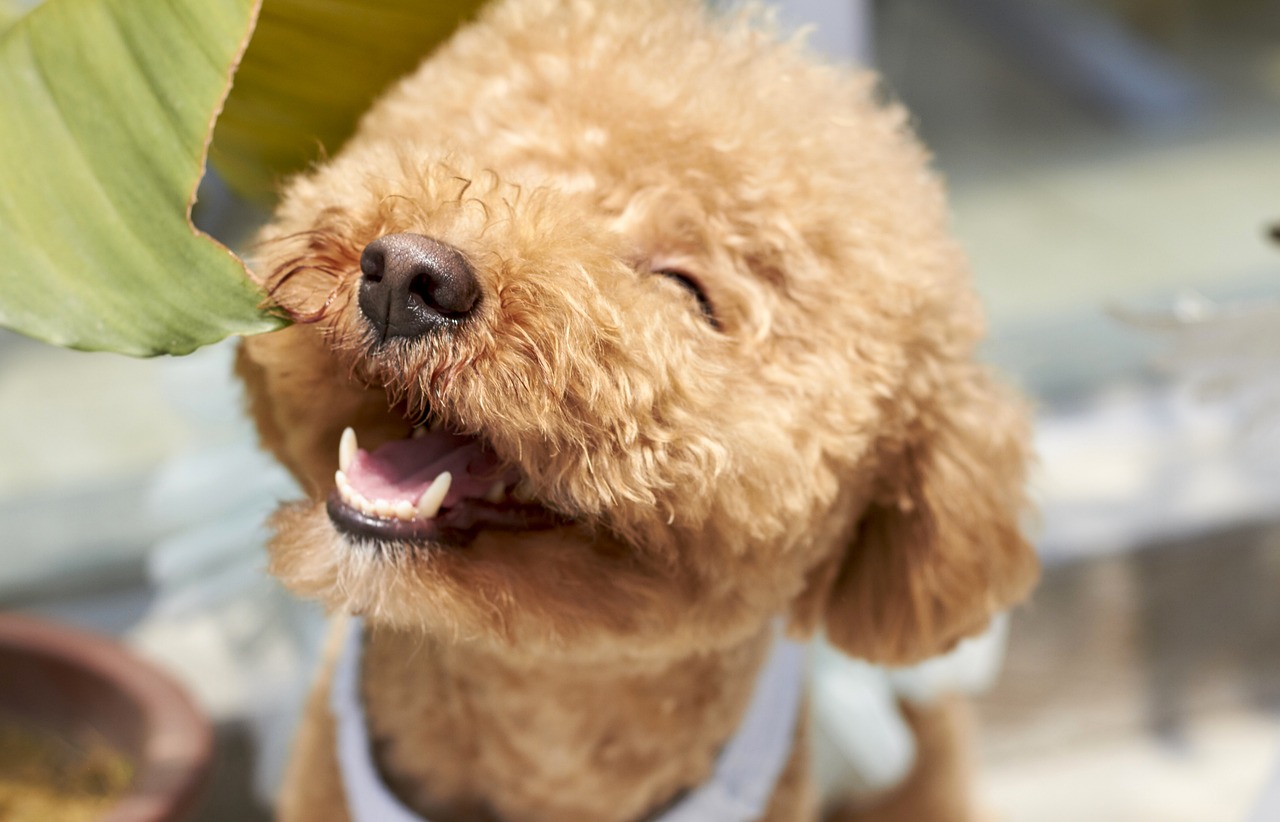
2. Bichon Frise
The Bichon Frise is known for its soft, curly coat that doesn’t shed much, thus reducing the spread of allergens. These small dogs are cheerful, playful, and get along well with children and other pets, making them excellent family pets. Regular grooming is necessary to keep their coat in good shape and minimize any potential for allergens. Bichons are also known for their affectionate nature and adaptability, thriving in both apartments and houses.
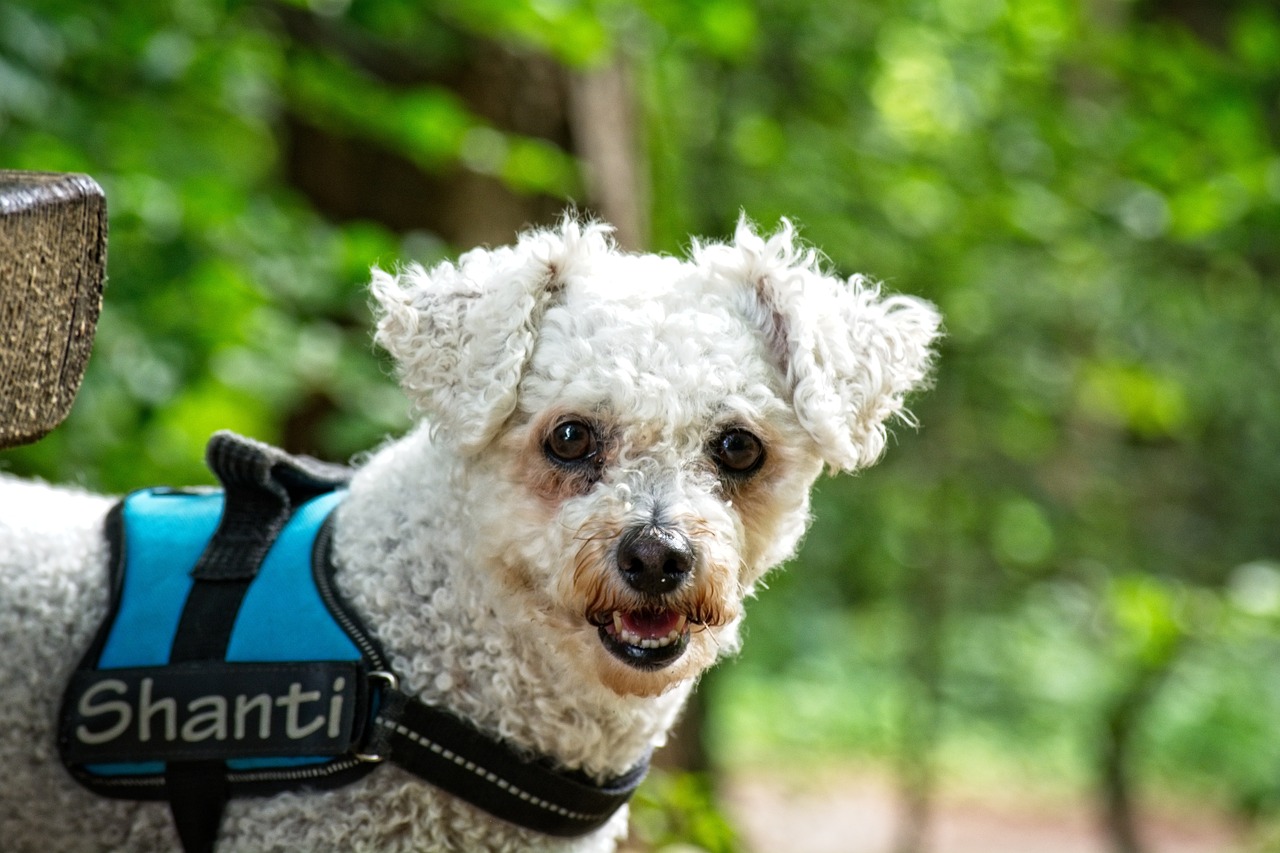
3. Portuguese Water Dog
Portuguese Water Dogs were originally bred to help fishermen at sea, which explains their sturdy build and love for water. Their tight, curly coat is virtually waterproof and does an excellent job of keeping dander from spreading. These dogs are energetic, intelligent, and highly trainable. Regular grooming is essential to keep their coat from tangling and to minimize shedding, making them a suitable option for allergy sufferers looking for a larger, active dog.
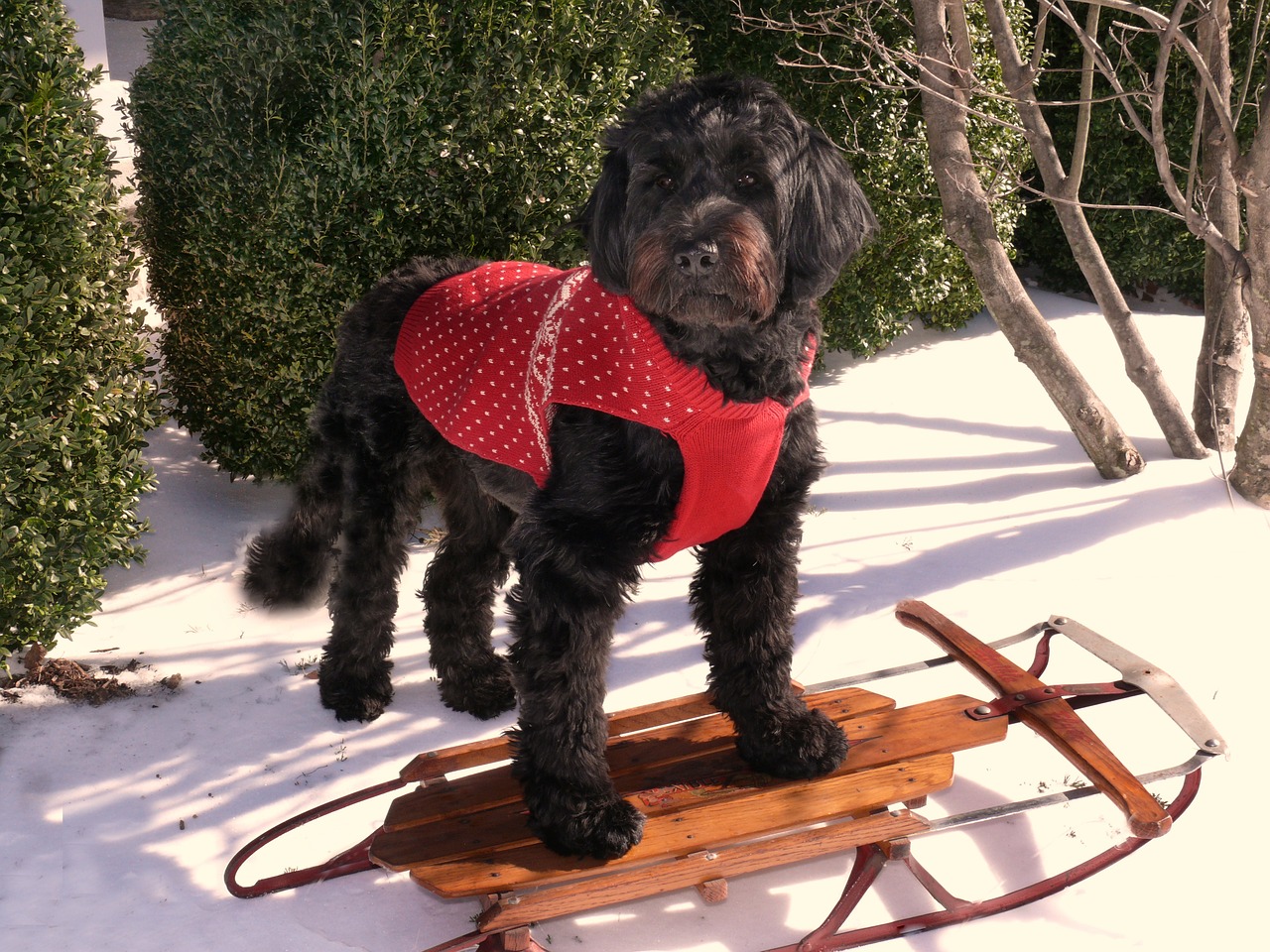
4. Schnauzer
Schnauzers come in three sizes (Giant, Standard, and Miniature), all of which possess a wiry double coat that sheds minimally. This breed’s distinctive beard and eyebrows capture large particles like dander, reducing allergens in the environment. Schnauzers are known for their guardian instincts and energetic personality. Regular grooming, including brushing and occasional clipping, is required to maintain their coat’s hypoallergenic properties.
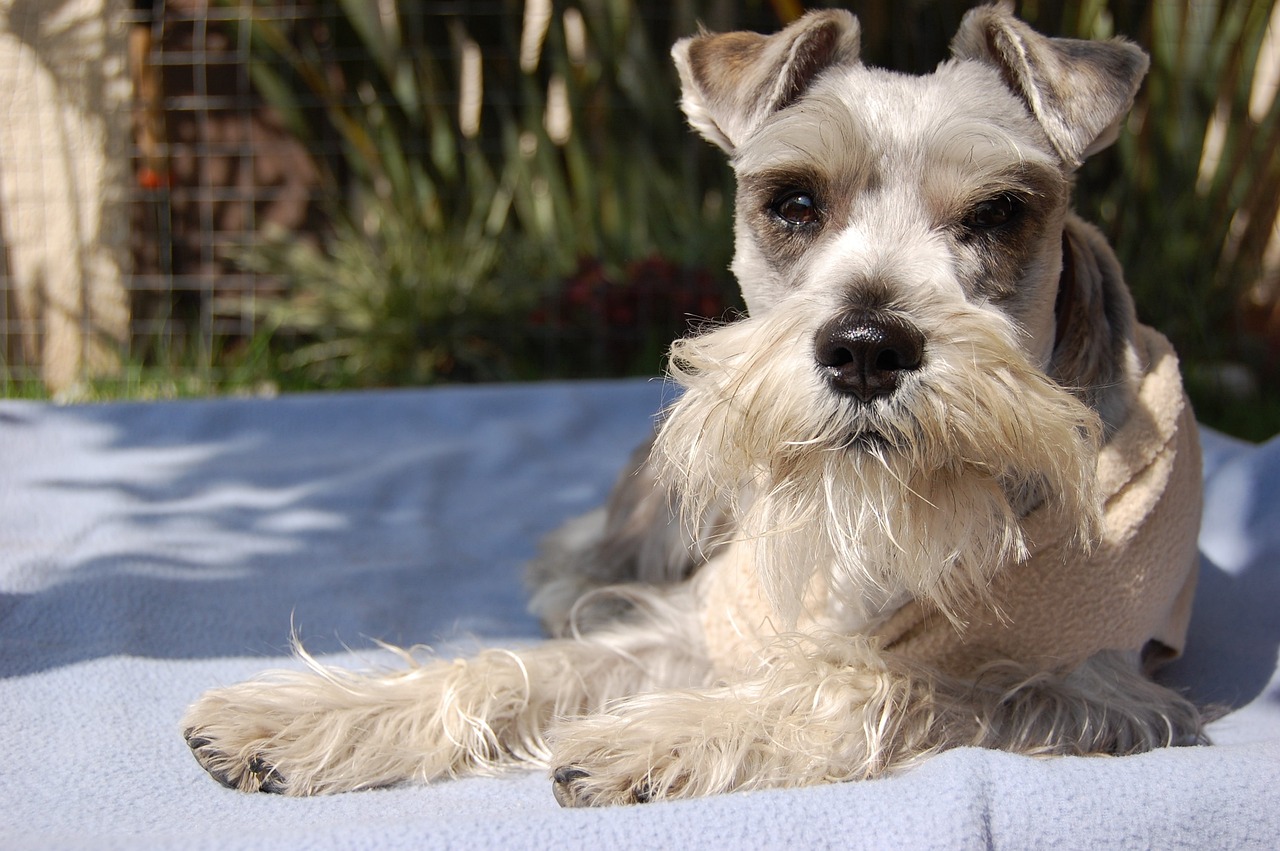
5. Scottish Terrier
Scottish Terriers have a dense, wiry outer coat and a soft undercoat, which helps minimize the amount of loose hair and dander they release into the environment. They are independent, confident, and sometimes aloof, but they can also be quite affectionate with their families. Scottish Terriers require regular grooming to keep their coat in good condition and reduce potential allergens, making them an excellent choice for allergy sufferers who appreciate a dog with a strong personality.
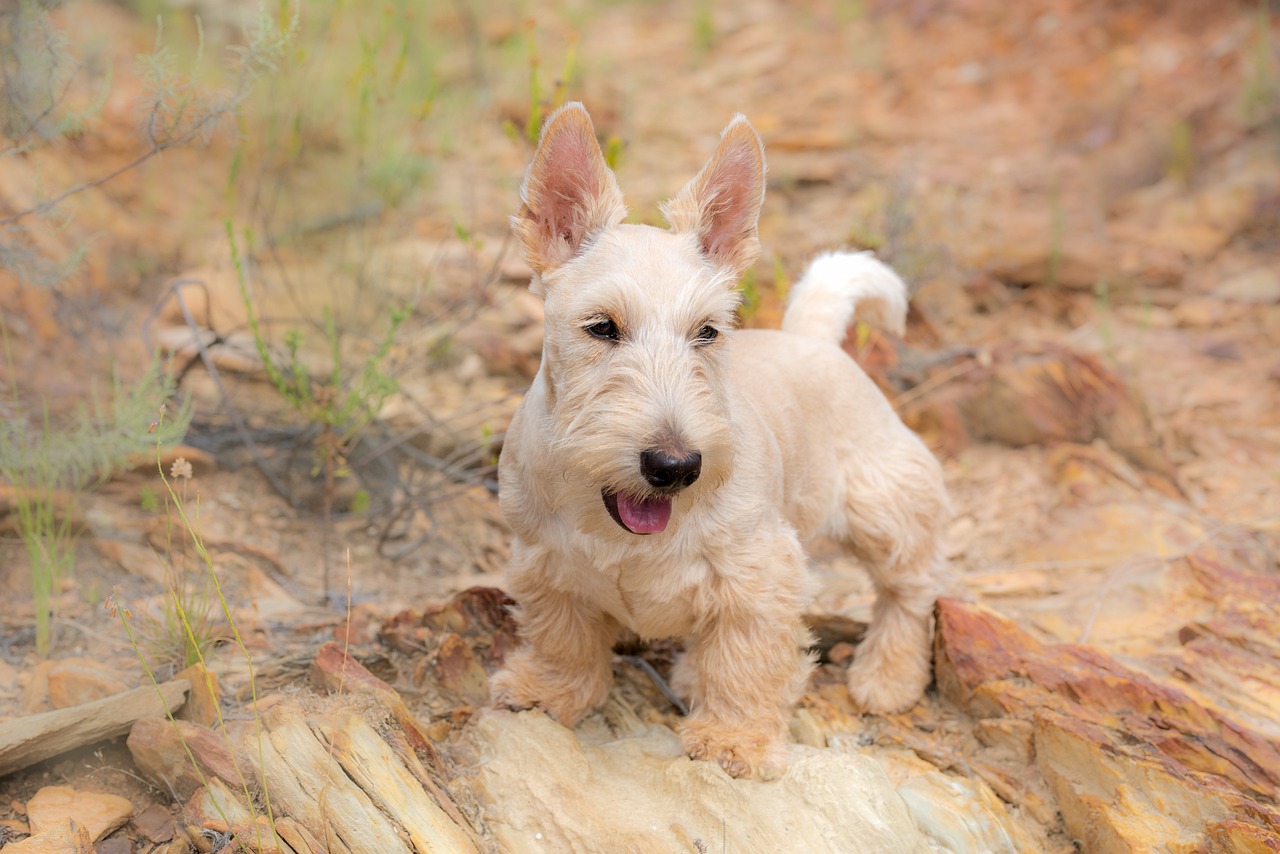
6. Maltese
The Maltese breed features long, silky hair that sheds very little, making them a favored choice among those with allergies. They are small, energetic, and known for their gentle and affectionate nature. Despite their luxurious coat, Malteses require regular grooming to prevent tangles and keep their fur from collecting dander and other airborne allergens. Their friendly disposition and manageable size make them ideal companions for those living in smaller spaces.
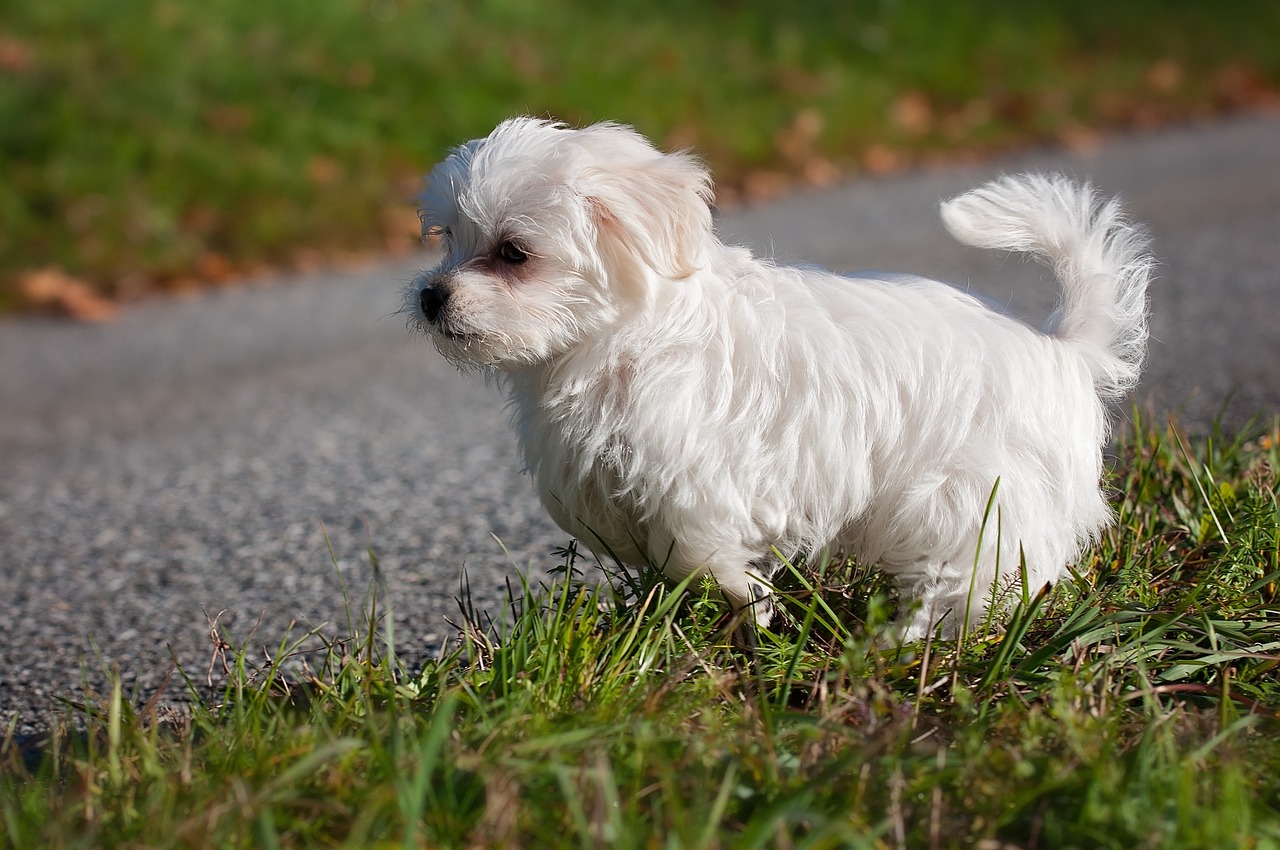
7. Labradoodle
The Labradoodle, a cross between a Labrador Retriever and a Poodle, often inherits the Poodle’s hypoallergenic coat, making them a popular choice for families with allergies. Their coat can vary from wavy to curly and requires regular maintenance to ensure it remains hypoallergenic. Labradoodles are friendly, intelligent, and highly trainable, combining the best traits of both parent breeds in a low-shedding package.
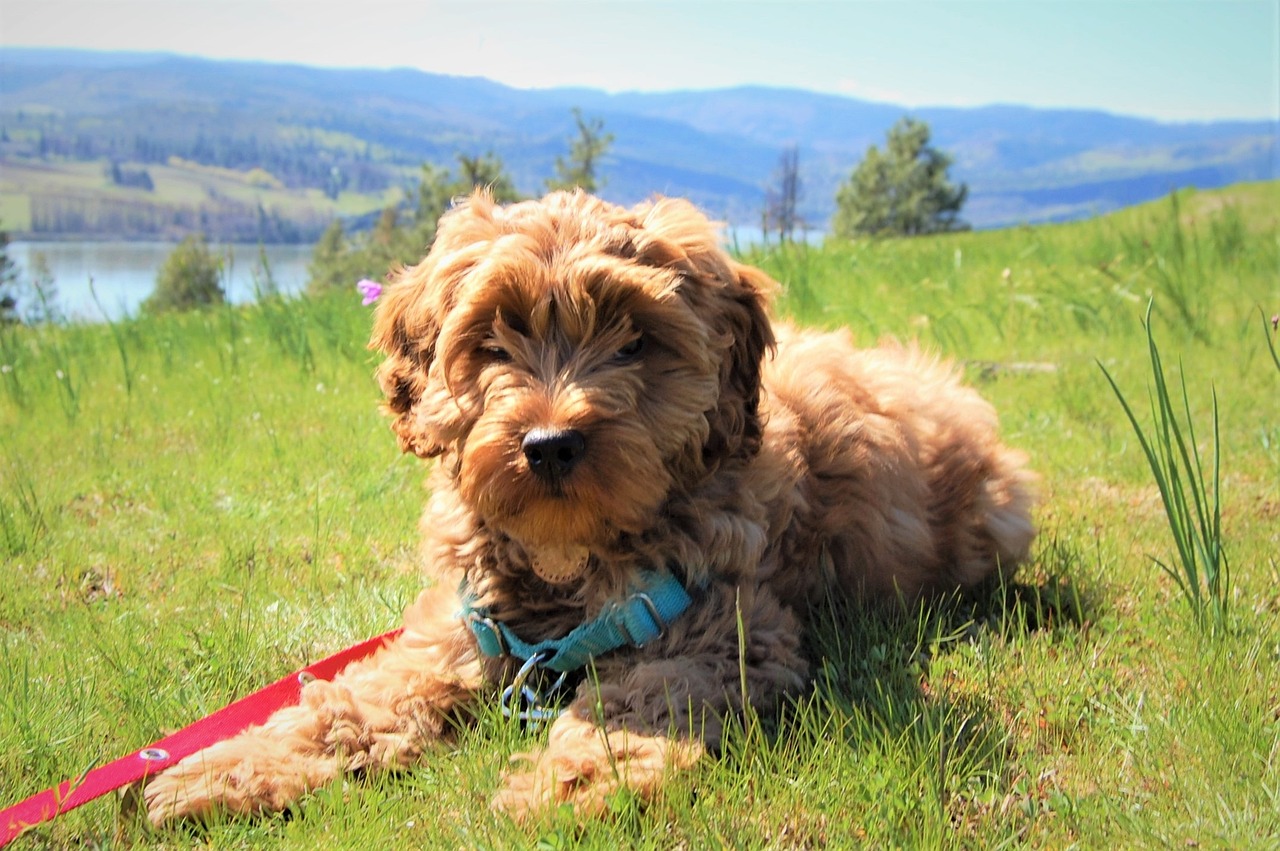
8. Basenji
Basenjis are known as the “barkless dogs” of Africa, but they are also known for their short, fine coat that sheds minimally. This breed is ideal for allergy sufferers due to its grooming simplicity and lower dander production. Basenjis are independent and cat-like in their behavior, often grooming themselves. They require minimal grooming but offer maximum companionship with less risk of allergies.
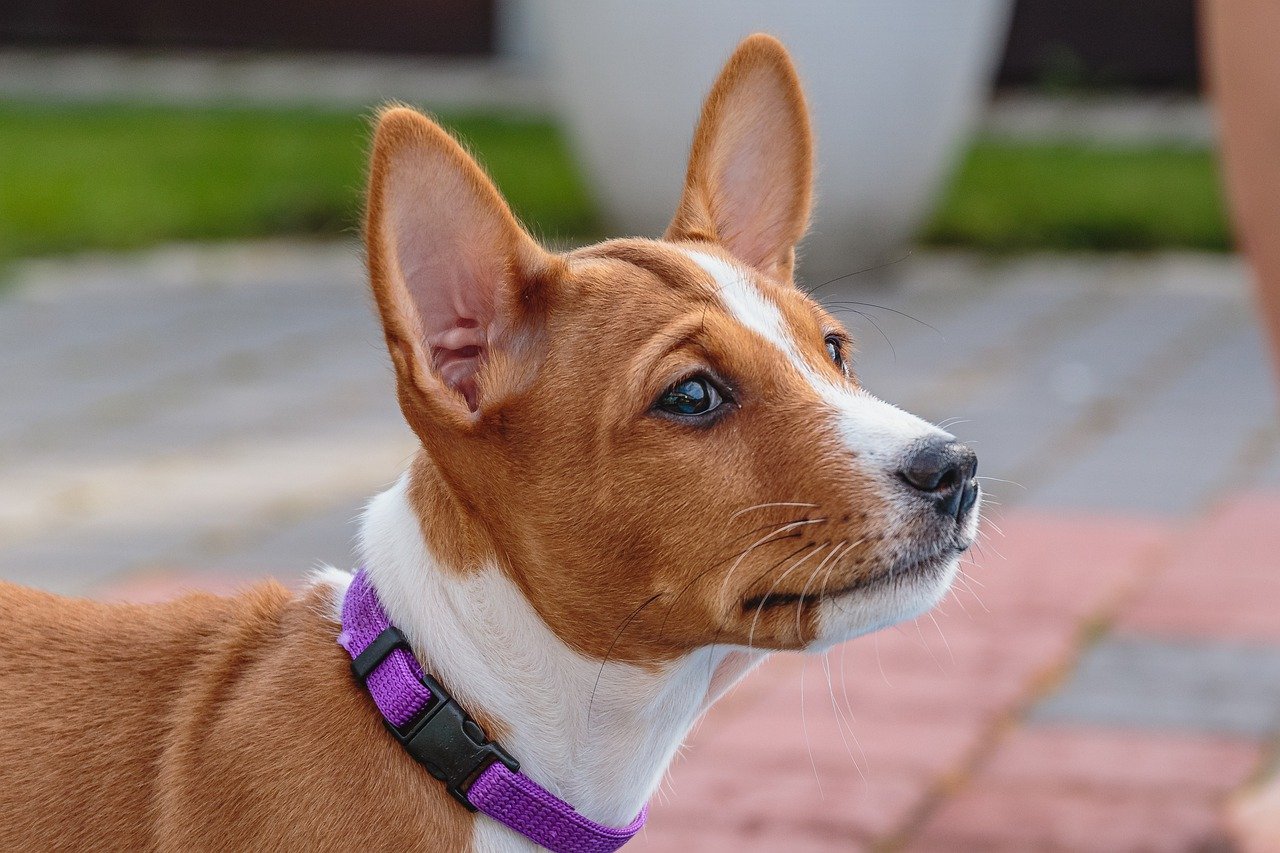
9. Irish Water Spaniel
Irish Water Spaniels have a dense, curly coat that sheds very little and is considered hypoallergenic. They are energetic and intelligent dogs that excel in various canine sports and activities. Regular grooming is necessary to keep their coat free of mats and to maintain its hypoallergenic properties. Irish Water Spaniels are an excellent choice for active individuals or families who want a dog that can keep up with a busy, outdoor lifestyle.
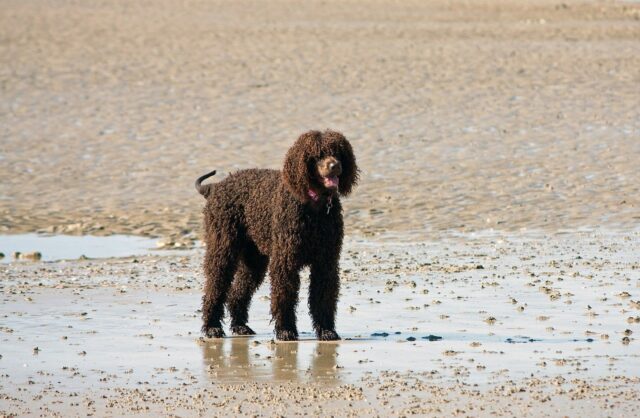
10. Soft Coated Wheaten Terrier
Soft Coated Wheaten Terriers have a unique single coat that sheds very little and is soft to the touch. This breed’s coat is less likely to cause allergic reactions, making them suitable for families with allergies. Wheatens are friendly, outgoing, and adaptable, thriving in various living situations as long as they receive adequate exercise and attention. Regular grooming is needed to keep their coat in top condition and minimize the presence of allergens.
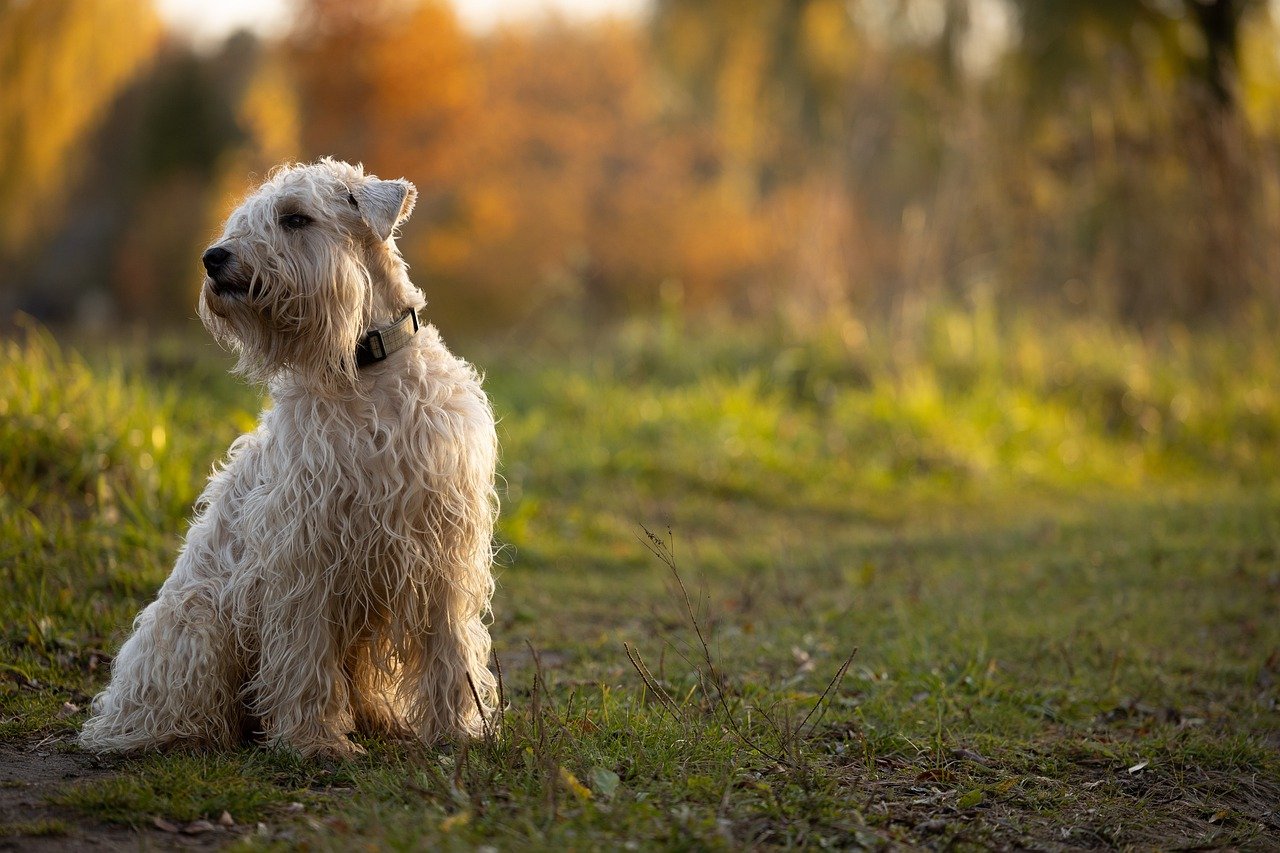
11. Chinese Crested
The Chinese Crested comes in two varieties: Hairless and Powderpuff, the latter having a coat of fine hair that is hypoallergenic. The Hairless variety has hair only on the head, tail, and feet, making them one of the most hypoallergenic breeds available, as they produce minimal dander. These dogs are affectionate, playful, and thrive on human companionship, making them perfect for allergy sufferers who also want a lap dog.
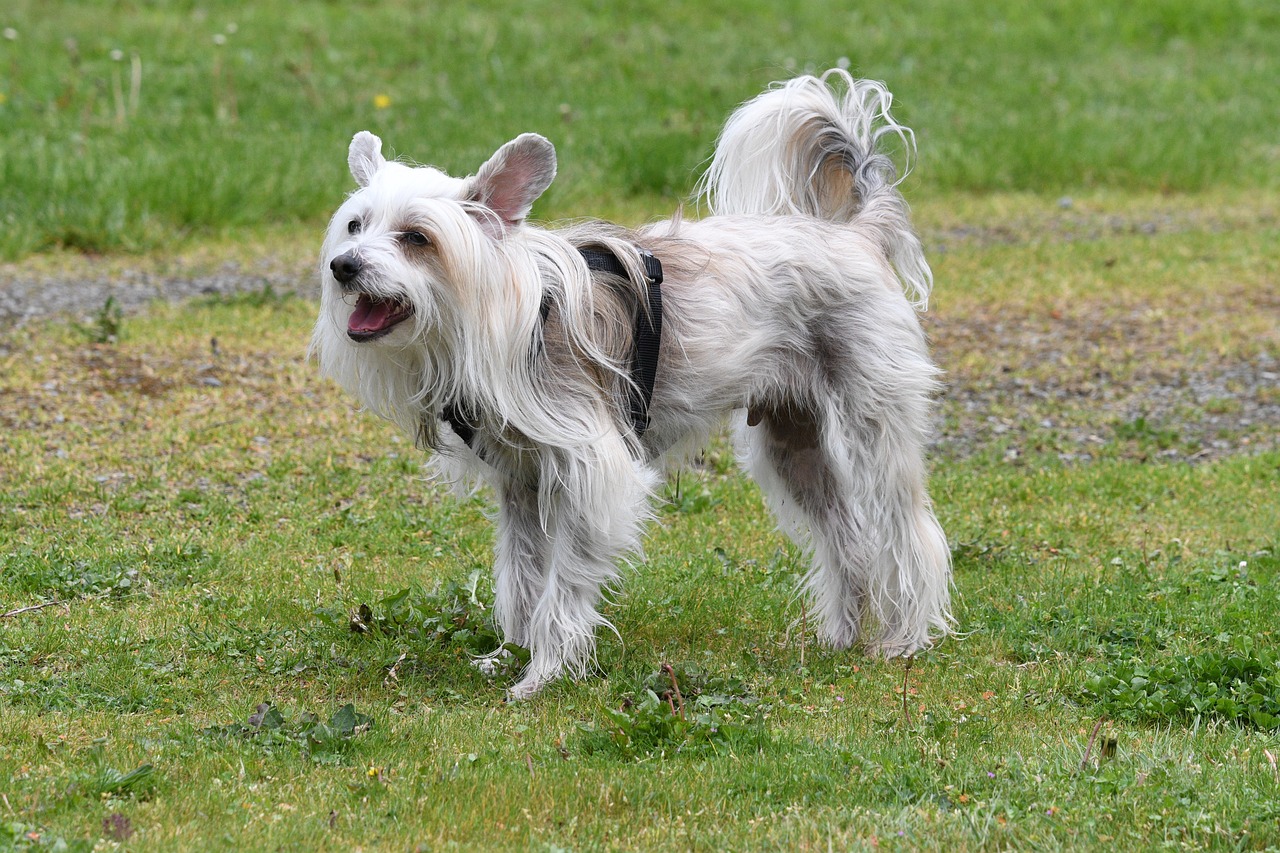
The dog breeds listed above offer options for allergy sufferers who might otherwise think pet ownership is out of reach. Each breed combines unique qualities, from minimal shedding and dander production to specific grooming needs that help reduce allergens. Choosing the right hypoallergenic dog involves considering not only allergy requirements but also the breed’s temperament, size, and energy level to ensure a good fit for your lifestyle and family. With the proper choice, even those with allergies can enjoy the companionship and joy that a dog brings to a home.
 Toledo, United States.
Toledo, United States.